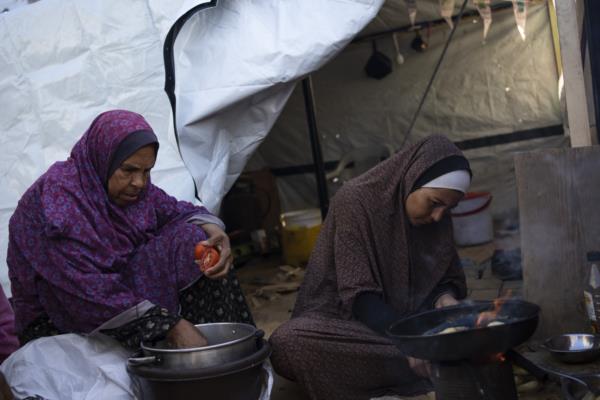
In the midst of conflict and devastation, Muslims in Gaza are facing immense challenges as they observe the holy month of Ramadan. Randa Baker and her family, like many others, are grappling with loss and hardship as they break their fast each evening.
Due to the ongoing war and displacement caused by Israel's assault on Gaza, families like Baker's have been forced to rely on charity and humanitarian aid for their meals. The absence of loved ones, including Baker's husband who was killed during the conflict, has cast a shadow over their Ramadan observance.
With a significant portion of Gaza's population displaced and living in dire conditions, the usual festive atmosphere of Ramadan has been replaced by hunger and despair. Many families are struggling to find adequate food, with some resorting to eating animal feed or surviving on just one meal a day.






Despite the challenging circumstances, some Palestinians are trying to maintain elements of the Ramadan spirit. From singing traditional songs to lighting festive lanterns, there are small efforts to bring moments of joy amidst the prevailing sadness.
However, the overall mood remains somber, with people expressing deep sorrow and exhaustion as they navigate the daily struggle for survival. The scarcity of food and skyrocketing prices have added to the hardships faced by Palestinians in Gaza during this holy month.
Islamic scholars have acknowledged the difficulties faced by those who are undernourished or in poor health, emphasizing that fasting is not obligatory for individuals whose health is at risk. The war has taken a toll on the physical and emotional well-being of Gaza's residents, making it challenging for many to fully observe Ramadan.
As the conflict continues to unfold, the people of Gaza are holding onto fragments of normalcy and tradition, seeking solace and resilience in the face of adversity.
For more updates on the situation in Gaza, visit AP's coverage.







